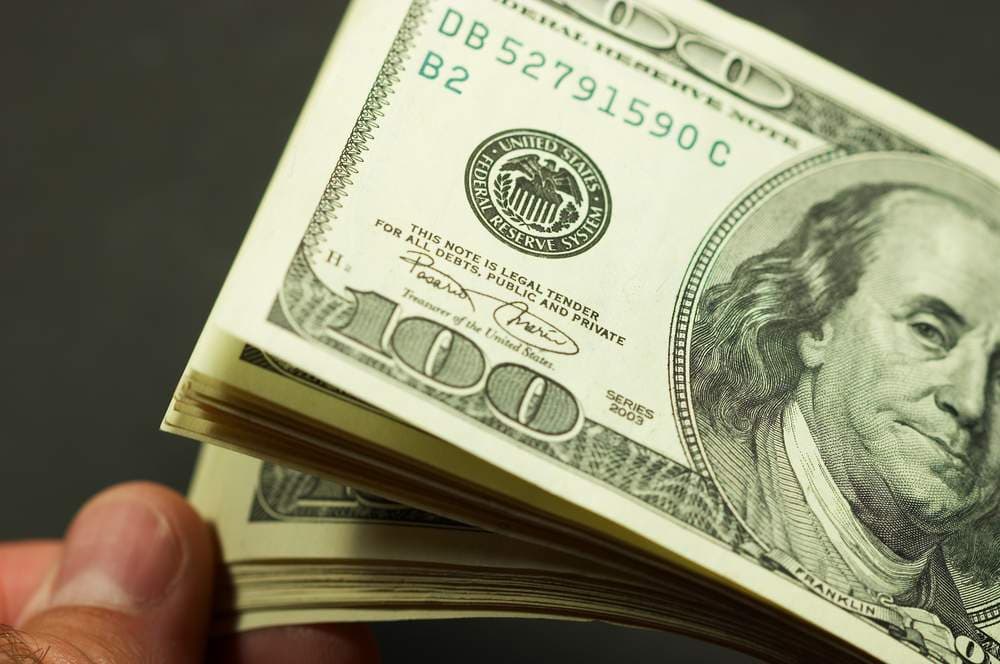Beneath the Surface
The Forced March of White Collar DOGE Refugees
March 13, 2025 • 6 minute, 32 second read

“The 5,200 contracts that are now canceled spent tens of billions of dollars in ways that did not serve, (and in some cases even harmed), the core national interests of the United States.”
–Secretary of State Marco Rubio, on the closing of USAID, via X/Twitter
March 13, 2025 — Morning in Nassau. Location: A tiki hut on Jankanoo Beach.
We had a tough choice to make before a Grey Swan Zoom call: Should we sample the local Karik Gold or stick with a Chilean Savignon Blanc?
We’d gathered to hear Andrew Zatlin talk about jobless trends. And congressional trades.
Zat kicked off with this glib comment: “Buy Starbucks.”
Not because the coffee’s any good, or they’ve started giving away free refills, but because the next time you order a latte in Arlington, there’s a solid chance your barista used to manage a $50 million democracy-building fund in Kyrgyzstan.
Back in the DMV — D.C., Maryland, Virginia, that overcooked cauldron of government lifers — the great USAID purge is still sending tremors through the system. Ten thousand employees gone. Down to 294. The survivors are just there to turn off the lights and send out final invoices.
The NGOs that spent years feeding off USAID’s bottomless trough are collapsing in real time. Their six-figure executives are realizing that “Director of Global Strategic Partnerships” is not, in fact, a transferable skill outside of a cocktail reception on K Street.
The LinkedIn class is scrambling. Bureaucrats and NGO bigwigs are suddenly “consultants” or “advisors” — which, as we both know, is résumé-speak for “I have no real skills, and I’m hoping someone will pay me to pretend otherwise.”
No one ever accused government and NGO paper pushers of having cutting-edge skills…
Meanwhile, Zatlin pointed out that Starbucks’ recent slump in share price was due to employee efforts to unionize. But now? With thousands of newly unemployed, hyper-credentialed government workers willing to pour macchiatos just to keep the lights on, that won’t be much of a problem in the DMV anymore.
The DMV real estate market is already taking a nosedive. The McMansions that once housed NGO royalty are hitting the market in droves, and the only buyers left are vultures waiting for prices to drop another 20%. Tesla repossessions are next.
And if that weren’t enough, the stock and crypto sell-off is in full swing. The same government workers who thought they were financial geniuses because they made a few lucky bets on Coinbase and Robinhood are now panic-selling their memecoins and growth stocks just to keep their power on.
The “DOGE Storm” is real.
“HODL” isn’t just a bad investment strategy anymore — it’s a desperate plea from the same people who laughed at the idea of saving money when Uncle Sam was signing their checks.
The markets are all over the place trying to make sense of the tariff policy du jour.
This week? A 200% tariff on French wine and cheese. That’s a bridge too far, in our humble opinion. But it comes about because of Europe’s retaliatory tariffs slapped on American whiskey. C’est la vie.
LVMH stock is down 2.2% because Moët & Chandon suddenly got a whole lot more expensive. Cognac producer Rémy Cointreau dropped 4.5%. Pernod Ricard, 3.6%.
Forget steel and aluminum tariffs — the next market crash will be because some guy on Twitter claims Canada is threatening to cut off maple syrup exports… or electricity, one of the two.
Musk, DOGE and tariff skirmishes have markets reacting like a cat on bath salts.
So, with all the fury and bluster, what’s an individual investor supposed to do?
“As long as the wheels don’t come off completely,” Zatlin said, “these tariff tiffs will be done and dusted by June or so. Then the real Trump agenda of building American goods for export will kick in.”
The group’s prevailing sentiment: “Trump’s tanking the markets and forcing a correction now, so the economy will be on the upswing by midterms.”
Goldman Sachs is pushing the “stagflation trade” – a commodity-heavy portfolio that bets on inflation-driven plays — energy, raw materials, and healthcare, while shorting consumer discretionary stocks, semiconductors, and unprofitable tech.
So far, it’s up 20% this year while the S&P is down 5% – er, 6%.

Of course, there’s gold, specifically. The metal topped $2,990 in trading this morning, and it’s so close to $3,000 it’s just a matter of when, not if, that next major milestone hits.
Macquarie Group just released a report forecasting gold at $3,500 this year. That is, unless Musk DOGE-s Fort Knox first. But barring an impulsive SpaceX heist, gold’s moment has arrived. ($3500 is chump change if Musk and Trump get their mitts on Fort Knox, see here).
Hard assets are the only things holding up while Trump and his minions flood the zone.
Real estate might be a buy — but not in D.C., where sellers still think their five-bedroom suburban castle is worth last year’s inflated price.
Let them sweat it out another six months. Commodities, energy, and anything with real, tangible value — those are the plays now.
Zatlin is adamant. There’s a short window. If you’re not prepared, the Trump trade will pass you by. The market is big on picking winners and losers right now, as we forecasted in our latest research on the MAGA economy.
It’s also why our latest special reports include seven stocks to go long now – and a whopping 50 to avoid. This isn’t the kind of market in which you benefit from being blindly bullish or bearish. You’re better off being strategic.

Addison Wiggin,
Grey Swan
P.S. Please don’t buy Starbucks. A quick look at the chart suggests it’s still way overvalued even after it got knee-capped earlier this week. For Mr. Zatlin’s actual trade recommendation this morning, take a look at what he expects the stock price of a cutting-edge AI innovator is likely to do in 2025, right here.
P.S. Yesterday, while wandering around Nassau, we went to the Manilla Grill for some fresh Philippine food. The beer and water were imported by a firm based in California.
On the way back to our British-owned hostel, we stopped at the Blanc du Nil, a French boutique and bought linen shirts made in Malaysia from a couple of Pakistani shopkeepers.
Prices are cheap for food, drink and other stuff. The Bahamian dollar is pegged interchangeably with the U.S. version, so there are no issues with it.
The Bahamian government keeps tariffs low. And, as an island nation, survives on imports and global tourism. Why can’t we do as Rodney King suggested all those years ago and “all just get along,” eh?
P.P.S. “You don’t need to be a dummy,” begins one piece of Grey Swan reader feedback, this morning, hitting us with a strong, albeit short-sighted, opinion:
Trump MAGA team thinks President Donald Trump will bring prosperity back to American soil. They are wrong.
Burning bridges with allies and trade partners will only make businesses worse off. Economists have warned the public that trade wars will lead to economic shrinkage and downfall. Trump’s demand for fair trade with other nations is an unrealistic goal, particularly because the USA is still the largest consumer market in the world.
Trump’s defiance of economic laws will ruin American trade and business and lead the American economy into a global recession. Today, a global economy system cannot warrant the complete dominance of a single country, and the US president has gotten his economic plan all wrong.
As a result, the American economy will suffer. MAGA supporters need to pressure the administration to change course immediately, or damage to the economy will result.
As always, please send your thoughts to feedback@greyswanfraternity.



